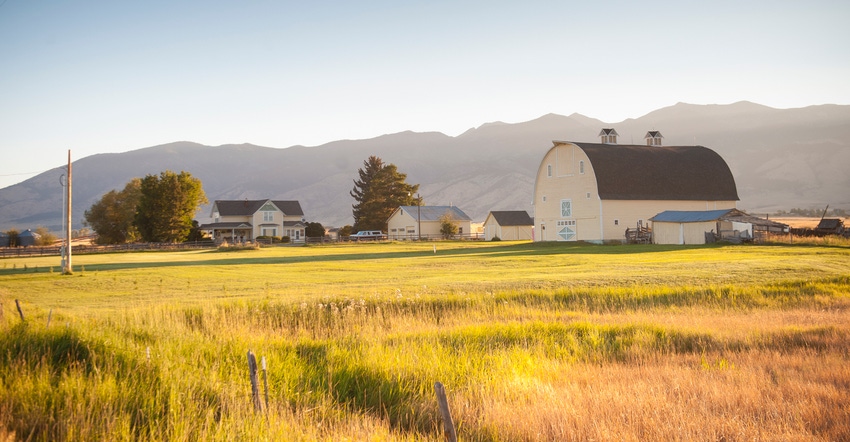March 8, 2021

Michigan Department of Agriculture and Rural Development Director Gary McDowell has issued Pandemic Public Health Measures in Migrant Agricultural Worker Housing Emergency Rules, which require licensed housing providers to create and implement plans to prevent exposure to the novel coronavirus that causes COVID-19, care for individuals with COVID-19, and take measures to help prevent the spread of the virus among workers.
The emergency rules are similar to guidance issued by Gov. Gretchen Whitmer and the Michigan Department of Health and Human Services in 2020, including provisions requiring licensed housing providers to have a COVID-19 preparedness and response plan.
“Under Gov. Whitmer’s leadership, Michigan’s farmers, farmworkers and the public health community came together last year to protect migrant and seasonal agricultural workers from COVID-19,” McDowell says. “With growing season on the horizon, we need to implement a framework that ensures those protections remain in place this year.”
The new rules went into effect March 2 and will be in place for up to six months. The rules may be extended once for an additional six-month period, if needed.
To assist, MDARD has provided a checklist that outlines the content needed for the COVID-19 preparedness and response plan. MDARD staff will review the COVID-19 preparedness and response plan, including the following requirements:
Distancing and cleaning. Beds within each living unit should be arranged to maintain at least 6 feet of space between them. Fabric, plastic, or other flexible or nonflexible barriers should be placed between beds that cannot accommodate 6-foot separation. Sanitation supplies are available for use by occupants. A living unit with kitchen and bathroom is established as isolation housing for COVID-19-confirmed camp occupants. A living unit with kitchen and bathroom is established to serve as isolation housing for COVID-19-suspected camp occupants.
COVID supervisor. A COVID supervisor is assigned for each camp. The COVID supervisor will maintain and update names and contact information for each person in each living unit; ensure all camp occupants receive COVID-19 mitigation training; ensure all camp occupants receive necessary personal protection equipment; conduct a weekly review of camp conditions, refill sanitation supplies and report issues to the camp owner; and review screening questions with employees each morning before work.
If a worker has a fever, shortness of breath, coughing or other symptoms, the COVID supervisor will favorably excuse them from work and notify the employer of COVID-19 symptomatic status of individuals. The COVID supervisor and camp owner will coordinate response and notification to the local health department.
The COVID supervisor will ensure that camp occupants wear face coverings whenever two or more are within 6 feet of each other outside of living units; ensure the contact areas of company-owned vehicles are cleaned and disinfected after each trip; ensure common kitchen and bathroom facilities are cleaned and disinfected daily; and ensure individuals with COVID-19 or who are COVID-19-suspected are provided food, water, laundry and medical support, and follow personal protection equipment requirements.
Camp posting. A clear and conspicuous posting area for COVID-19-related materials must be established in each camp.
The following documents and information should be clearly posted in a conspicuous area in each camp:
street address of the camp for 911 services
name and contact information for the camp COVID supervisor
contact information for the local health department
current migrant labor housing license for the camp
Michigan coronavirus hotline number: 888-535-6136
information on health clinics within 10 miles of the camp, if available
information on state established medical isolation and quarantine facilities for the COVID-19 response, if available
information on the location of additional sanitation and personal protection equipment supplies
Posters must be printed in both English and Spanish and other languages, if spoken by 5% or more of the occupants.
Post notice at the entrance to the isolation and quarantine areas that requires anyone entering to wear proper personal protection equipment, including a facemask and gloves, and wash their hands thoroughly (immediately after departure).
Camp occupant mitigation practices. Camp occupants will maintain bed spacing or barriers and wear supplied personal protection equipment; sleep in accordance with orientation indicated by the camp owner; and follow all instructions to ensure compliance with all sanitation and camp rules.
Migrant labor housing providers who have already received their 2021 license will have until April 1 to comply with the provisions in the emergency rules.
To view the emergency rules, visit Michigan.gov/MOAHR. To view the COVID-19 preparedness and response plan and FAQ sheet, visit Michigan.gov/MLH.
Source: MDARD, which is solely responsible for the information provided and is wholly owned by the source. Informa Business Media and all its subsidiaries are not responsible for any of the content contained in this information asset.
Read more about:
Covid 19You May Also Like




